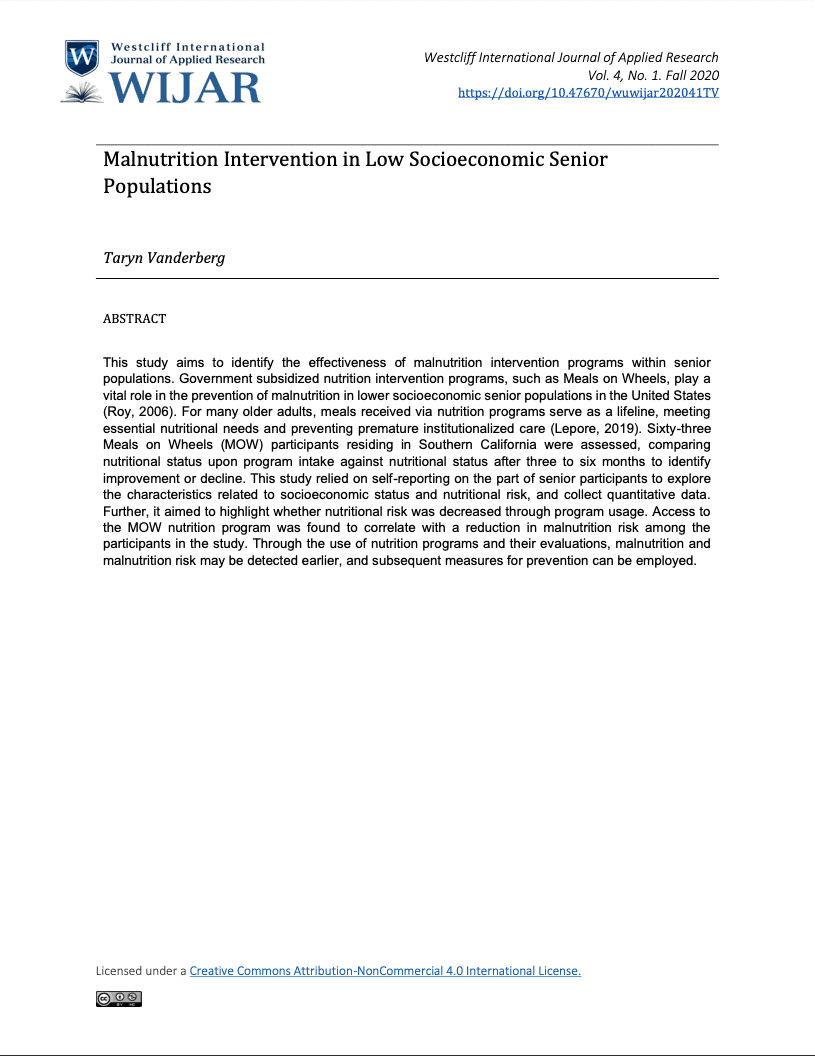Malnutrition Intervention in Low Socioeconomic Senior Populations

Author: Taryn Vanderberg
Issue: Fall Issue, 2020
Download ArticleAbstract
This study aims to identify the effectiveness of malnutrition intervention programs within senior populations. Government subsidized nutrition intervention programs, such as Meals on Wheels, play a vital role in the prevention of malnutrition in lower socioeconomic senior populations in the United States (Roy, 2006). For many older adults, meals received via nutrition programs serve as a lifeline, meeting essential nutritional needs and preventing premature institutionalized care (Lepore, 2019). Sixty-three Meals on Wheels (MOW) participants residing in Southern California were assessed, comparing nutritional status upon program intake against nutritional status after three to six months to identify improvement or decline. This study relied on self-reporting on the part of senior participants to explore the characteristics related to socioeconomic status and nutritional risk, and collect quantitative data. Further, it aimed to highlight whether nutritional risk was decreased through program usage. Access to the MOW nutrition program was found to correlate with a reduction in malnutrition risk among the participants in the study. Through the use of nutrition programs and their evaluations, malnutrition and malnutrition risk may be detected earlier, and subsequent measures for prevention can be employed.
